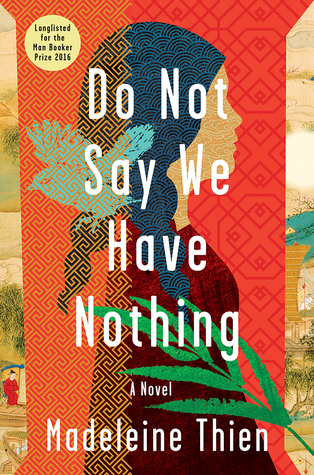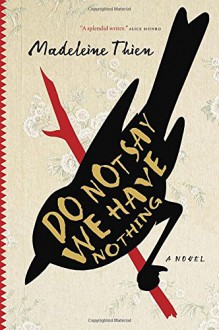
Much like when I read The Historian, I was unable to decide if what I was reading was fiction or nonfiction. (Of course, there were no vampires in this book so maybe this isn't the best comparison except for the way they both made me feel.) I couldn't put down Do Not Say We Have Nothing by Madeleine Thien despite how much I sometimes wanted to in order to spare myself further heartbreak. This is the story of those who lived through China's Cultural Revolution and their successors a world away in Canada...at least a tiny little slice. Our main characters rotate between Sparrow, Kai, and Zhuli who lived during Mao Zedong's reign of terror, Ai-Ming who took part in the demonstrations of Tiananmen Square, and Marie who wants to piece everything together in present day Canada. This is also about music and its power to lift the soul or to mire it in secrets. A lot of sensitive topics are touched on in this book including but not limited to torture, public humiliation, and sexual assault. This is not just a work of historical fiction but also a mystery about people, events, and a book that keeps resurfacing. Intricately woven with details which seem to make the story come to life in vivid color right before your eyes this book is one that I think everyone should experience. This is the hallmark of excellent historical fiction. 10/10
For a nearly complete list of the classical music mentioned in the book: Spotify.
 |
| Source: Goodreads |
What's Up Next: Hunger by Roxane Gay
What I'm Currently Reading: Roald Dahl's Book of Ghost Stories

 Log in with Facebook
Log in with Facebook 







